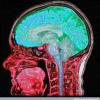I've been taking Bacopa Monierii for around 2 months, initially at night, and then switched to the morning after breakfast.
This is the ONLY nootropic I'm taking - I decided to add components of a proposed stack one at a time to see what effects they had individually. The only other thing I take is SWISSE multivitamins.
In the first two weeks, the Bacopa was amazing, producing a whole range of positive benefits, including increased motivation, increased creativity, and much greater sensitivity to coffee. I had trouble falling asleep as my mind would race with lucid, creative ideas. One night after two cups of coffee during the day, I lay awake until 3am jotting down ideas for a complete program of artistic work. Descriptions of images, techniques, symbolism, allusion, tools and source materials to produce an ongoing body of work. I itemised the techniques I knew, and those I'd need to learn to produce these visions, described specific images, and noted areas in which the method could be expanded. And I'm NOT even a painter. I dabble in street art.
After two months, this initial rush of creativity and motivation has diminished, to be replaced with increased lucidity, and what seems to be more general resilience.
All in all now I feel as if the Bacopa Monierii has created a subtle elevation of both my mood and general clarity, but without any of the initial focus and motivation.
I'm thinking about switching back to night-time doses to see if this brings back the focused motivation.
Edited by sdk, 06 August 2009 - 04:00 AM.






















































